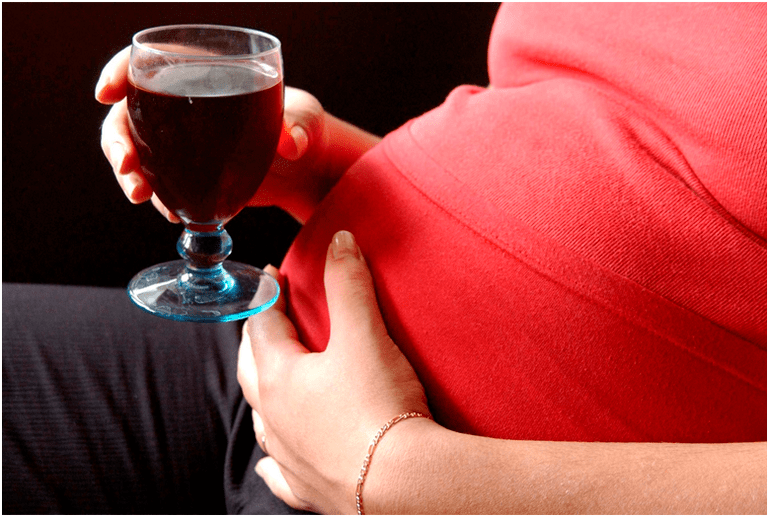The scandalous British psychotherapist David Nutt, who became famous not only for his scientific achievements, but also for his habit of expressing his thoughts and beliefs directly and without unnecessary nuance, argued that there is no more dangerous substance for a person than alcohol. According to the degree of destructive effect, ethyl alcohol exceeds many poisons and drugs, but for some reason, the habit of drinking in the evenings is considered normal by most people.
Of course, when alcoholism crosses social boundaries and a person begins to fall into the abyss and lead a marginal lifestyle, it is considered a slow suicide, but are most people so critical of the so-called domestic drunkenness? A glass or two of wine with dinner, a bottle of beer with a soccer match, or a 100-gram drink for a meeting with a friend is accepted as a cup of tea, but such a habit is no less destructive in the end. more harmful than chronic drinking. Is alcohol really that dangerous or just a stereotype? Let's go to the opinion of scientists.
The harm of alcohol to the human body: a brief overview
So, what is the main danger of alcohol? Deceptive harmlessness! California scientists claim that small amounts of ethyl alcohol are completely safe. True, they are politely silent about what ends "in a small amount" and where "drunkenness" begins. It is also impossible to find information on who funded these studies, as they are not published in any high-profile scientific journals, which would require information on all experimental protocols and sponsors. Is it because the representatives of the alcohol industry are in charge? It remains only to guess.
At the same time, there is no such addiction that will arise by itself - in most cases, alcoholism arises from the habit of drinking a bottle in moments of special joy and sadness, among friends and relatives. And we are not talking about notorious alcoholics who cannot live a day without a bottle of cheap wine - there are enough people in intellectual circles who spoil their health every day.
It is difficult to find a more insidious liquid than alcohol. It acts on the brain like serotonin (a natural hormone of happiness), creating an imaginary feeling of happiness and a high mood. It is this effect that is responsible for the formation of the habit - instead of learning to enjoy life to the fullest, it is easier to hide the mind with a surrogate for pleasure.

But this effect is quickly replaced by a less unpleasant effect - a complete loss of control over one's emotions and actions forces a drunk person to "appear in all his glory". Someone shows aggression, someone starts crying for no reason, someone is extremely kind. . . There are many manifestations of drunkenness, but none of them look attractive from the outside.
Moreover, inappropriate behavior is far from the worst companion of drunkenness. According to statistics, more than half of traffic accidents and one third of suicides occur in a drunken state. With each drink, the number of cells in the cerebral cortex gradually decreases, but the irreversible effect is not immediately noticeable. Look into the eyes of a person who has been drinking alcohol for a long time and regularly - common sense, social norms and human perception there are gradually replaced by banal animal instincts and craving for bottles. Moreover, this process is irreversible - if the destroyed liver can still be treated a little, the cerebral cortex is not restored. Australian scientists have proven that even those who drink moderate amounts of alcohol 2-3 times a week, the size of the brain is gradually decreasing, and its functionality decreases due to shrinkage. On average, 200 ml of strong 40-degree drink kills 1000-2000 cells. Keep that in mind when pouring another glass!
Harm of alcohol for men

Like any addictive substance, ethyl alcohol acts insidiously - at first you will not notice any changes and unpleasant health consequences, but over time, if it is impossible to give up a drunken glass, you will understand for yourself how deceptive it was at first. impression. Even the belief of some drinkers that the bottle helps them relax and de-stress is nothing but self-deception. Such a feeling leads to paralysis of the center of attention and self-control - ethanol enters the blood, affects the brain centers and simulates a feeling of euphoria that overshadows all other senses and dulls the rational perception of reality. The same is true for marijuana or hashish. Why is the harm of drugs known even to a child, and alcohol is considered as pampering? No reply…
Moreover, media stereotypes and advertisements about the brutality and masculinity of the stronger sex are directly related to the use of alcohol. A glass of beer, a glass of whiskey or rum is considered a noble pastime of true gentlemen, but it is not so. Yes, at first this bottle will be invisible, but with each new sip, the veins and capillaries will become sensitive and less flexible, and the heart will work at half capacity. This means that after several years of regular "evening with a glass", blood circulation will inevitably be disturbed, resulting in impotence, which cannot be eliminated even with the help of modern potential regulators - any of these drugs have a strict restriction on alcohol. So, dear men, remember: by raising glass after glass, you are depriving yourself of an important aspect of a fulfilling life.
Harm of alcohol on the female body
Women's alcoholism is much worse than men's. Although ethanol has an equally destructive effect on the bodies of both sexes, female physiology is more strange: the sensitivity, emotionality and psychological sensitivity of the fairer sex is a reasonable physiological characteristic, that is, it develops a lot of dependence on the illusion of happiness and tranquility. Faster. Women who try to hide from the problems of forgetting alcohol, get drunk faster, because the body cannot resist this connection, and the characteristics of psychology interfere with the attempts of the mind to overcome the desire for a glass.
In addition, a woman's liver filters ethyl alcohol worse, that is, it breaks down faster under its influence. As statistics show, the first signs of cirrhosis appear on average 5 years after alcohol addiction in women, and after 7 years in men. And although the difference is small, it clearly demonstrates that the female body is a priori more sensitive than that of men. to alcohol.

What are the dangers of alcohol during pregnancy?
A pregnant woman is a sacred vessel in which the life of the unborn child is hidden. Unfortunately, not every woman accepts the pregnancy situation in this way. Modern trends dictate new rules: today "in charge" ladies do not deny themselves anything, including a glass of red wine recommended by a gynecologist to reduce body tone and general comfort. Who gave these doctors the diploma of medical education? What do gynecologists recommend when they recommend it to pregnant women? There are many proven and safe ways to relieve stress, such as fresh air, meditation, simple yoga poses, or walks in nature. What does alcohol have to do with it?
Research by the American Association has shown that the death rate of newborn babies born to alcoholic mothers is 5 times higher than that of non-alcoholic mothers. And this is not about alcohol addiction, but about the notorious "cultural drinking", which is called domestic drunkenness. Ethanol affects the fetus even in the womb, causing developmental disorders, mental retardation and other pathologies that will accompany the child throughout his life! Is the imaginary pleasure of a mother who cannot refuse a glass of alcohol worth the pain she goes through?
An interesting experiment on the effect of alcohol vapor on embryos was conducted at the Federal Medical-Biological Center. 160 eggs were placed in the incubator, and at the same time, an ethanol steam generator was installed in the room. As a result, half of the embryos simply did not form, and of the remaining 80, 40 died in the first days after birth, and the other 25 had serious defects - for example, without a beak, without a wing or wrong. forms the legs. Worth considering!
Harm of alcohol on the adolescent's body
There is no innate need to drink alcohol and there cannot be - children learn this by watching their families and loved ones. If the advertising, sale and consumption of alcoholic beverages were banned on the same day, no child would feel deprived or inferior, let alone be tempted to try alcohol-containing products. However, statistics change significantly during adolescence: more than 60% of modern teenagers try alcohol by the age of 15, and their percentage reaches 90 by the time they reach adulthood.
The research of our scientists B. S. Bratusya and P. I. Sidorova showed that even at kindergarten age, children easily repeat the process of drinking and the state of intoxication. If you ask children to play a trip to a wedding, birthday or party, they will inevitably clink glasses, pour drinks and toast. Thus, a stereotype is formed that alcohol is a companion of joy and fun, a symbol of a carefree and happy adult life. This is where teenage alcoholism begins.

What are the harms of alcohol to today's teenagers?
Today's teenagers perceive alcohol as a small and empty pastime that allows them to overcome initial disappointment, overcome embarrassment on a first date, or simply hang out with friends. However, even a glass of low-alcohol, such as beer or home-made wine, will be enough for a fragile body to become intoxicated and lose control.
For teenagers, drinking is a false opportunity to assert themselves, to feel more mature, more comfortable and more daring. For this, using alcohol to pretend to be a "bad boy" or a "deadly girl" is as easy as setting fire to a pear, but is everything as harmless as it seems? Disruptive behavior, attempts to appear more mature, bragging and hysteria are far from the worst companions of teenage drinking. Most young people lose their sense of proportion after drinking a glass, gradually succumbing to a surrogate feeling of euphoria. This is how the attachment is created, and considering that the organism as a whole and especially the psyche are not yet fully formed during adolescence, it will be more difficult to overcome the addiction than in adults.
Harm of alcohol on the human body: results
Data from the World Health Organization is unmistakable: every third case of premature death is somehow related to alcohol consumption. Some drink until they completely destroy the body, others get into accidents under the influence of ethanol, and some lose self-control and harm themselves. However, today it is not so simple to make a conscious choice in favor of a sober lifestyle: with a glass of alcohol, successful men and women look at us from TV screens, billboards and their smartphones, and only look down in a small and almost invisible way. the font is a note: "Excessive alcohol consumption is harmful to our health" to comply with the law.
There is a simple explanation for such mass advertising: the profitability of the alcohol industry is estimated at billions of dollars, where every potential consumer is another opportunity to fill their pockets. To resist this propaganda, it is enough to think for yourself and worry about your own health. The atomic explosion in Hiroshima killed two hundred thousand people, and alcohol kills about one and a half million people every year. That's all math. . .
6 reasons to give up alcohol
A glass of wine is often offered to relieve stress and emotional difficulties. At the same time, alcohol can be the source of many problems. We explain to you why it is better without alcohol.
Alcohol is a depressant
Alcohol is often referred to as an antidepressant, which is not true. It relaxes the body only for a short time and improves mood by increasing dopamine, the pleasure hormone. But later the body adapts to the production of the hormone and more and more is required to achieve the effect. In addition, tetrahydroisoquinoline, a substance that inhibits the production of dopamine and serotonin, is formed. Without stimulation, a person stops enjoying life, falls into a depressed mood. Thousands of neurons are destroyed beyond repair.
After a short-term elevation of mood, there is an increase in aggression and apathy. Scientists say that alcohol contributes to insomnia, increases anxiety and can cause nervous disorders with its systematic use.
Negative effects on mood decrease after two weeks of abstinence from alcohol and are almost completely eliminated within a month - a person recovers mental functions, mood normalizes, vitality and motivation increase.
Alcohol affects the appearance
With frequent use of alcohol, the skin loses elasticity due to dehydration. This causes premature aging and cosmetic problems: redness and swelling, gray skin tone, bruises and wrinkles appear under the eyes. Cholesterol rises in the blood, which causes red streaks in the whites of the eyes. When a person stops drinking, most body functions are gradually restored, which has a positive effect on appearance. This will last anywhere from a few weeks to a few years, depending on how long you drink it.
Alcohol causes overeating
Ethanol stimulates a specific AGRP protein called the "obesity protein". It significantly increases appetite, causing gluttony even when a person is full of energy and does not want to eat. The habit of drinking a glass of wine helps to slow down the metabolism, so it is better to replace alcohol with healthy drinks.
Alcohol causes disease
Alcohol is the cause of cirrhosis and hepatitis due to inflammation and scarring of the liver tissue. It actively destroys the pancreas and causes diabetes. The walls of the intestines are destroyed under the influence of alcohol, the structure of the cells changes, they stop fully absorbing useful substances that affect the immune system and general health. Alcoholic beverages have a negative effect on most organs. The production of mucin in the stomach is suppressed - a substance that protects the mucous membrane from irritants. Without it, the stomach is prone to gastritis and peptic ulcer.
After cleaning the body from alcohol, the intestinal microflora is gradually restored within a week. By the way, the removal of alcohol from the female body is 20-25% slower than that of men. If a person stays sober for two weeks, he will have clarity of thought, blood pressure will normalize, heartbeat will stabilize, shortness of breath and headaches will disappear.
Fixed financial costs
One of the less obvious, but pleasant, consequences of giving up alcohol is savings. High duties are imposed on winemaking raw materials, so ready-made drinks in the country are mainly bought from abroad. Alcohol prices are constantly rising, and if you drink high-quality (and the other is not worth it), then this will affect the budget. Even at the cost of a glass of wine with dinner on average a month, you'll save quite a bit. Add to this the costs of visiting doctors, as well as buying medicines and cosmetics that you need less with a healthy lifestyle.
The risk of developing alcoholism
It seems that alcoholism can develop only in disadvantaged people. In fact, this is not always an obvious disease with external symptoms. At an early stage, an alcoholic can continue an active social life, go to work, take care of loved ones, meet friends. Alcoholism occurs regardless of the standard of living, wealth and education. At the same time, at first glance, non-obvious malfunctions in the work of the body and psyche appear. Therefore, it is especially important to control this habit and monitor your health to avoid irreversible consequences. Moreover, the sooner a person stops drinking alcohol, the sooner most of the problems arising from it are resolved.
What if a little?
You can often conclude that alcohol in small doses is good for health. Doctors at the American Heart Association dispute this theory. For six years, they observed about five thousand volunteers, half of whom drank often and little - just a glass of wine or a mug of beer in the evening. Experts noted that these people, according to general health indicators, are at an increased risk of developing disorders of the cardiovascular system, including the possibility of atrial fibrillation.































